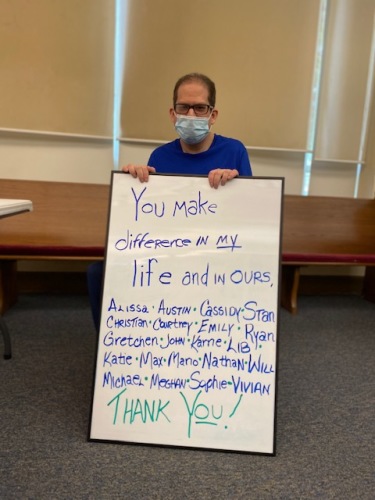The Need
High school graduation is an exciting time, representing the transition of a child to a young adult. Universities are visited, career choices determined, and a new independence from family begins.
For a student with intellectual and developmental disabilities (IDD), the path is much different. Aging out of the public-school transition program at 21 begins a time of loss and uncertainty. While their classmates pursue additional education and job opportunities, most young men and women with IDD simply go home. Although home may be a warm and loving environment, the availability of stimulating engagement is very limited. This inherent isolation frequently results in a loss of communication and social skills.
The transition is difficult for parents as well. Caring for their child full-time while they work or help with their aging parents is exceptionally difficult. There is also a financial burden. Whereas part-time jobs and student loans allow non-disabled graduates to pursue post-secondary education, these are not options for individuals with IDD. Some adults with IDD do receive public-funded benefits, but many do not. And although benefits are helpful, they only provide approximately 25% of the funds required for a quality program.
We welcome an opportunity to tell you more about Connecting Point!

